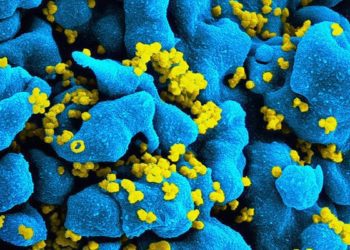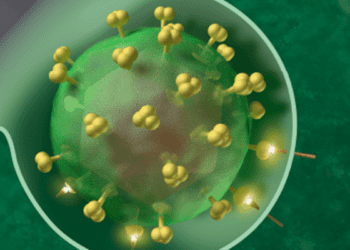Modified hepatitis B vaccination regimen in HIV-infected patients associated with improved immune response
1. In HIV-infected individuals, a modified hepatitis B vaccination regimen which consisted of a higher dose compared to the standard regimen led to an increased proportion of patients with positive titers and a greater duration of response.
2. Predictors of positive long-term vaccination response included high level initial response, greater time since HIV diagnosis, lower HIV RNA level, CD4 count >350/mL, and non-smoking status.
Evidence Rating Level: 1 (Excellent)
Study Rundown: Individuals infected with HIV often carry risk factors for hepatitis B virus (HBV) infection, and are recommended to undergo vaccination. These patients have a poorer serologic response to immunization compared to the general population. The described study sought to evaluate the long-term immune titer response in HIV-infected patients following standard intramuscular three doses of 20 mg (IM20 x3) compared to two alternate regimens. The alternate regimens were intramuscular four doses of 40 mg (IM40 x4) and intradermal four doses of 4mg (ID4 x4).
The increased antigen exposure with the IM40 x4 regimen led to an increased proportion of patients with positive titers at 42 months of follow up compared to the other two groups. The duration of response was also greater in the IM40 x4 group. This trial had a good sample size and study design, so the results are applicable to HIV-infected population. However, there was a high loss of follow-up rate of 28.6% by the end of the study period. While the alternative vaccine regimen seemed to improve serologic markers of immunity, the clinical relevance in terms of rates of infection may not be clinically reduced in the higher antigen-exposure group.
Click to read the study, published in JAMA Internal Medicine
Relevant Reading: Long-term response rates of successful hepatitis B vaccination in HIV-infected patients
In-Depth [randomized controlled trial]: This phase 3 open-label multicenter trial included 437 patients with HIV-1 infection, CD4 count >200/uL and seronegative for HBV infection. Patients were randomized to standard immunization with three doses (20 mg) of intramuscular recombinant HBV vaccine (IM20 x3), or alternative regimens with four doses of 40 mg of vaccine intramuscularly (IM40 x4), or 4 intradermal injections of 4mg (ID4 x4).
The proportion of patients with serologic response at 42 months was 41% (95%CI 33-49%) for the control regimen, 71% (95%CI 64-79%) for the IM40 x4 group, and 44% (95%CI 35-53%) for the ID4 x4 group. In multivariate analysis, sustained response at 18 months was associated with the IM40 x 4 regime (OR 3.54; 95%CI 1.59-7.86), CD4 count >350/uL (OR 2.26; 95%CI 1.13-4.51), longer time since HIV diagnosis (OR per year 1.06; 95%CI 1.01-1.12), and high initial response at 28 weeks (OR 25.8; 95%CI 11.3-59.0). Lower response was associated with active smoking (OR 0.41; 95%CI 0.23-0.74). Duration of response was greater in the IM40 x4 group with time to loss of positive titer in 15% of patients at 33.1 months, compared to 8.7 months and 6.8 months in the standard, and ID4 x4 groups, respectively.
Image: PD
©2016 2 Minute Medicine, Inc. All rights reserved. No works may be reproduced without expressed written consent from 2 Minute Medicine, Inc. Inquire about licensing here. No article should be construed as medical advice and is not intended as such by the authors or by 2 Minute Medicine, Inc.






